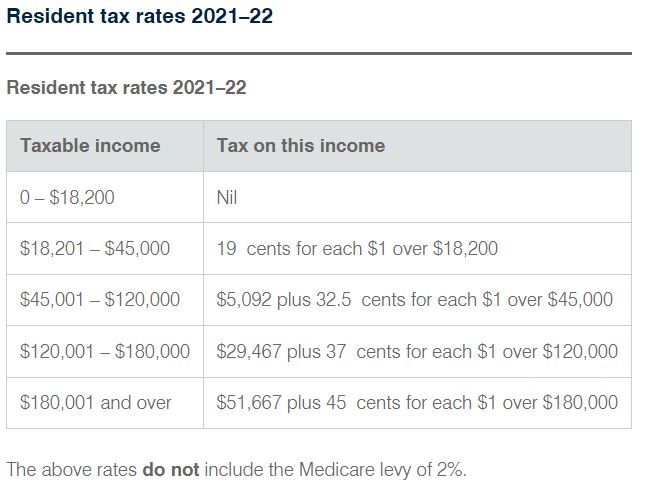How to Complete Your Online Tax Return in Australia Quickly and Accurately
How to Complete Your Online Tax Return in Australia Quickly and Accurately
Blog Article
Checking Out the Advantages of Declaring an Income Tax Return: Maximize Your Tax Reimbursement This Year
Filing an income tax return is often viewed as a tough job, yet it plays a vital role in enhancing your financial standing. By carefully reporting earnings and leveraging offered deductions and credit ratings, individuals can use the potential for substantial tax obligation refunds. Sticking to tax policies decreases the threat of fines. Comprehending the subtleties of this process can disclose overlooked opportunities for financial savings. As we check out the various facets of tax obligation filing, it comes to be apparent that the advantages prolong beyond plain compliance-- what approaches can you take on to ensure you are not leaving cash on the table?
Value of Filing an Income Tax Return
Filing an income tax return is a substantial duty for services and individuals alike, as it serves both conformity and economic administration functions. Following tax laws is important, as stopping working to submit can result in significant charges, rate of interest costs, and possible lawful effects. By submitting a Tax return, companies and individuals show their dedication to fulfilling their public obligations and add to the functioning of civil services.
Furthermore, filing a Tax return supplies a possibility for taxpayers to evaluate their financial scenario. It enables them to track income, costs, and total monetary wellness, which can inform future budgeting and financial investment decisions. For several, tax obligation returns are a portal to prospective reimbursements, as overpayment of taxes throughout the year can be reclaimed, offering a much-needed financial increase.
In addition, the income tax return process can help with access to numerous monetary product or services. Lenders usually call for tax obligation returns when establishing credit reliability for home mortgages or finances, making it vital for individuals and companies looking for monetary help. In final thought, filing an income tax return is not just a regulative commitment; it is a considerable step in keeping financial stability and disclosing possible advantages.
Comprehending Tax Deductions
Tax obligation reductions are frequently ignored yet play an important duty in lowering gross income and making the most of potential refunds. Understanding the various kinds of tax obligation reductions offered can substantially affect your general tax obligation. Deductions can be categorized into 2 major types: common reductions and itemized deductions.
The criterion reduction is a fixed dollar quantity that taxpayers can deduct from their income, varying based upon filing condition. For lots of people, specifically those without significant itemizable costs, taking the typical deduction is beneficial. On the various other hand, itemized reductions allow taxpayers to list eligible expenses, such as mortgage interest, clinical costs, and charitable contributions, possibly producing a higher deduction than the basic option.
It's vital to keep precise records of all deductible expenses throughout the year to assure you record every qualified reduction. Furthermore, particular reductions may go through phase-outs or limitations based upon earnings levels. Familiarizing yourself with these nuances can assist you purposefully plan your finances and maximize your tax obligation return. By leveraging and recognizing tax obligation deductions efficiently, taxpayers can reduce their taxed income and enhance their total tax reimbursement.

Checking Out Tax Credits
Maximizing your tax financial savings entails recognizing the various sorts of tax obligation credits available to you. Tax credit scores straight reduce your tax obligation obligation buck for buck, making them a lot more useful than reductions, which just reduced your taxable earnings.
There are two main classifications of tax credits: nonrefundable and refundable. If the credit rating exceeds your tax obligation owed, nonrefundable debts can minimize your tax obligation liability to absolutely no but will not result in a refund. Refundable credit ratings, on the other hand, can create a reimbursement even if you have no tax responsibility, making them specifically valuable for lower-income taxpayers.
Usual tax obligation credit scores consist of the Earned Revenue Tax Obligation Credit Score (EITC), which supports low to moderate-income working people and family members, and the Kid Tax Obligation Credit history, which offers economic alleviation for taxpayers with reliant youngsters. Education-related credit ratings, such as the American Opportunity Credit Scores and the Lifetime Knowing Credit scores, aid offset the prices of higher education.
Common Blunders to Avoid
Maneuvering the intricacies of income tax return can bring about a number of common risks that taxpayers must recognize. One considerable blunder is falling short to report all resources of income. Also small quantities from sideline or freelance job need to be included, as the IRS receives copies of all income statements.
Another frequent error includes overlooking deductions or credit scores for which one is qualified. Taxpayers need to completely look into possible deductions, such as for trainee loans or medical expenses, to avoid leaving money on the table.
Furthermore, errors in individual info, such as Social Security numbers or filing condition, can delay processing and refunds. It is important to double-check all details prior to entry to guarantee precision.
Filing late or neglecting to file completely can likewise result in charges and missed chances for reimbursements. Taxpayers need to recognize deadlines and strategy accordingly.
Finally, lots of people forget to keep comprehensive documents of expenses and supporting papers. Organized paperwork is fundamental for corroborating claims and promoting any kind of future audits. By avoiding these typical errors, taxpayers can enhance their declaring procedure and enhance their potential reimbursements.
Tips for Optimizing Your Reimbursement

Following, consider adding to retirement accounts, such as an individual retirement account. Contributions made prior to the tax deadline can be deducted, potentially boosting your refund. Furthermore, if you are independent, make sure to account for business-related costs that can reduce your gross income.
An additional crucial method is to submit your return electronically. E-filing not only speeds up the handling time yet additionally lessens errors that can accompany paper submissions. Additionally, validate that you choose the appropriate declaring standing; this can significantly affect your tax obligation price and eligibility for specific credit reports.
Finally, keep careful documents throughout the year. Organizing receipts and monetary records can simplify the declaring process and assist you determine possible deductions that you might otherwise miss out on. By taking these steps, you position yourself to receive the maximum refund feasible.
Verdict

By methodically reporting income and leveraging available reductions and credit scores, people can touch into the possibility for substantial tax refunds. For many, tax obligation returns are a gateway to prospective refunds, as overpayment of tax obligations throughout the year can be reclaimed, using a much-needed financial boost.
Understanding the numerous types of tax obligation deductions available can significantly influence your overall tax obligation responsibility. Online tax return Australia. By comprehending and leveraging tax obligation deductions successfully, taxpayers can lower their taxed income and enhance their overall tax refund

Report this page